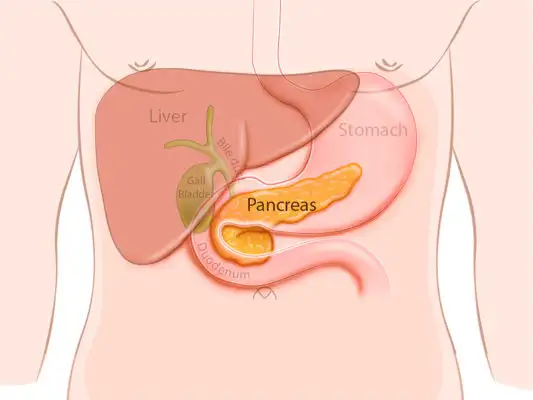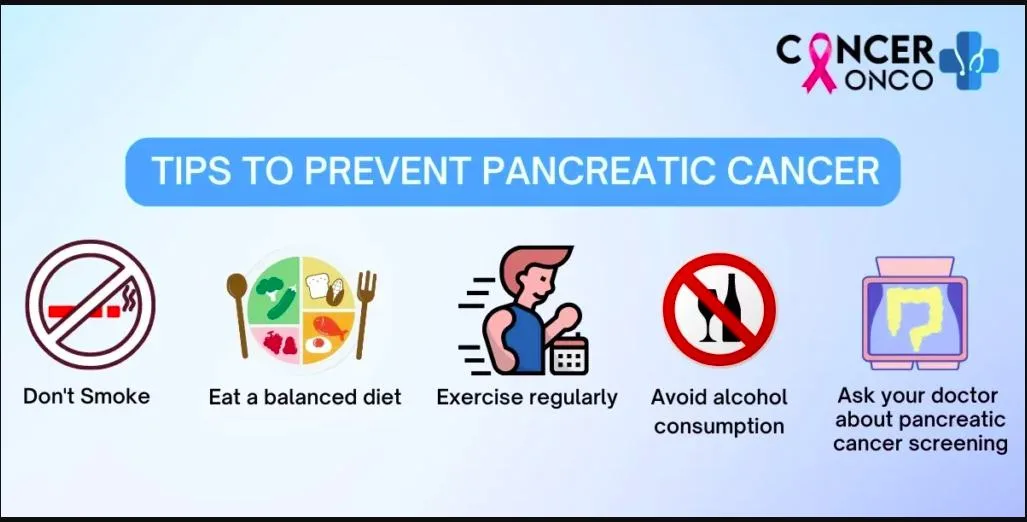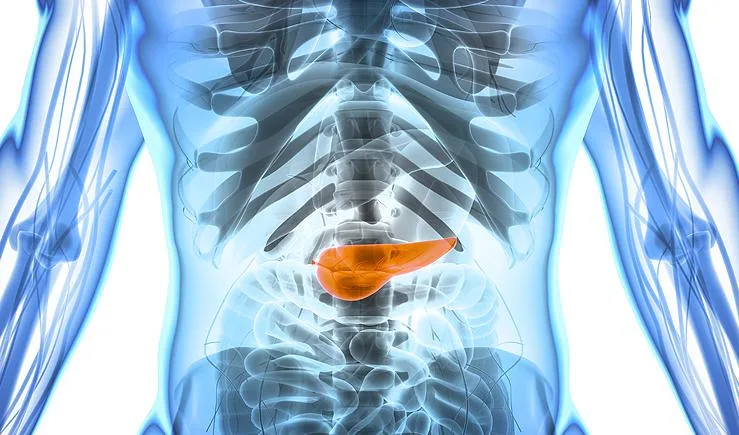Pancreatic Cancer Jaundice Life Expectancy 2026
Stagescancer.net - When it comes to pancreatic cancer, jaundice is often a sign that the disease has progressed. Jaundice occurs when the liver isn't able to remove bilirubin, a yellow pigment, from the body effectively. As a result, patients with pancreatic cancer often experience yellowing of the skin and eyes. This section will explore the impact of jaundice on the life expectancy of pancreatic cancer patients and the connection between the two.
Understanding Pancreatic Cancer
Pancreatic cancer is a serious disease that affects thousands of people each year. It develops when abnormal cells in the pancreas grow and divide uncontrollably, forming a tumor.
There are several risk factors associated with pancreatic cancer, including age, family history, and smoking. However, the exact cause of pancreatic cancer is still unknown.
Common symptoms of pancreatic cancer include abdominal pain, unexplained weight loss, and jaundice. Other symptoms may include nausea, vomiting, and changes in bowel movements.
It's important to note that not all individuals with pancreatic cancer will experience symptoms, and some symptoms may be similar to those caused by other health conditions. If you are experiencing any of these symptoms, it's important to speak with your healthcare provider to determine the cause.
Jaundice in Pancreatic Cancer
Jaundice is a common symptom in individuals with pancreatic cancer. It occurs when the liver produces too much bilirubin, a yellowish pigment found in bile, which then builds up in the blood and causes yellowing of the skin and eyes. In pancreatic cancer patients, jaundice is often caused by the tumor blocking the bile ducts that lead from the liver to the small intestine.
In addition to yellowing of the skin and eyes, other symptoms of jaundice in pancreatic cancer patients may include dark urine, pale stools, nausea, vomiting, and itching.
It is essential to be aware of the signs and symptoms of jaundice in pancreatic cancer patients, as early detection and treatment can significantly improve prognosis and increase the likelihood of successful treatment. If you are experiencing any symptoms of jaundice, it is crucial to seek medical attention promptly.
Impact of Jaundice on Prognosis
Jaundice is a common symptom of pancreatic cancer and can affect the prognosis and survival rates of patients. Studies have shown that the severity of jaundice can significantly impact the overall life expectancy of individuals with pancreatic cancer.
According to the American Cancer Society, pancreatic cancer patients with mild jaundice have a median survival rate of around six months, while those with severe jaundice have a median survival rate of approximately three months. This highlights the importance of early detection and prompt management of jaundice in pancreatic cancer patients to improve the prognosis and increase survival rates.
Other factors that can affect the prognosis of pancreatic cancer include the stage of cancer, age of the patient, and overall health status. However, the correlation between jaundice severity and survival rates underscores the critical role of managing this symptom in improving patient outcomes.
Key Takeaways
- Jaundice can significantly impact the prognosis and life expectancy of pancreatic cancer patients.
- Patients with severe jaundice have a much lower median survival rate compared to those with mild jaundice.
- Early detection and prompt management of jaundice can improve the prognosis and increase survival rates.
Overall, understanding the impact of jaundice on pancreatic cancer prognosis highlights the importance of comprehensive treatment plans that address not only the cancer itself but also its associated symptoms. This can help to optimize patient outcomes and improve overall quality of life.
Treatment Options for Pancreatic Cancer with Jaundice
When it comes to treating pancreatic cancer with jaundice, there are a variety of options depending on the severity of the condition. Medical intervention may include stenting or surgery to relieve bile duct blockages. Supportive care approaches such as managing pruritus (itching) and providing nutritional support through the placement of a feeding tube may also be recommended.
Note: It is important to consult with a healthcare professional to determine the best course of action for an individual patient.
| Treatment Option | Benefits | Considerations |
|---|---|---|
| Endoscopic stenting | Non-surgical approach, typically performed under conscious sedation with low complication rates. | May not be appropriate for patients with severe or infected obstructive jaundice, or those with other medical conditions that prevent endoscopy. |
| Biliary bypass surgery | Effective in relieving symptoms and reducing bilirubin levels. | A more invasive option with longer recovery times. May not be suitable for all patients depending on their overall health and surgical risks. |
| Duodenal stenting | May be considered in cases where both pancreatic cancer and duodenal obstruction are present. | May require multiple procedures, with the potential for obstruction recurrence. |
For patients who may not be able to undergo medical interventions, the focus may be on managing jaundice symptoms and providing supportive care to help maintain quality of life. This may include managing pruritus through medication, maintaining proper nutrition through a feeding tube, and providing emotional support through palliative care services.
Palliative Care for Pancreatic Cancer Patients
For pancreatic cancer patients, palliative care plays a crucial role in managing symptoms, relieving pain, and improving the overall quality of life. Patients with jaundice need to receive palliative care as it can provide emotional support and help them cope with the impact of their condition.
Palliative care focuses on addressing the holistic needs of the patients. It can include support to manage medication and nutrition, ensuring comfort and dignity, as well as providing psychological counseling. Palliative care providers work closely with the patient's medical team to provide integrated care.
The goal of palliative care is not to cure the disease but to improve the patient's quality of life. Studies have shown that patients who receive palliative care often report better pain management and less depression. Additionally, the involvement of palliative care can reduce the number of hospitalizations and emergency visits, leading to better cost-effectiveness.
It is important for pancreatic cancer patients and their caregivers to discuss palliative care options with their medical team. By doing so, patients can receive comprehensive care that addresses their emotional and physical needs.
Enhancing Quality of Life for Pancreatic Cancer Patients
Pancreatic cancer can have a significant impact on a patient's quality of life. Thankfully, there are numerous supportive care options available to help enhance well-being and manage symptoms.
Lifestyle Modifications
Healthy lifestyle choices can have a positive impact on both physical and emotional well-being. Patients may benefit from incorporating light exercise and stress-reducing activities into their routine, such as yoga or meditation.
Nutrition Guidelines
A healthy diet is crucial for pancreatic cancer patients, especially those with jaundice. Focus on nutrient-dense foods and proper hydration. Consult with a registered dietitian for personalized nutrition guidance.
Pain Management Techniques
Pain is a common symptom of pancreatic cancer, but there are many options for relief. Treatments may include medications, nerve blocks, or alternative therapies such as acupuncture.
Psychological Support
A cancer diagnosis can take a toll on mental health, but there are many resources available to address concerns and improve emotional well-being. Patients may benefit from individual or family counseling, support groups, or spiritual guidance.
In addition to these supportive care options, consider palliative care to maximize comfort and quality of life. With proper management and care, individuals with pancreatic cancer can still enjoy a meaningful and fulfilling life.
Coping Strategies for Patients and Caregivers
Being diagnosed with pancreatic cancer and jaundice can be overwhelming and emotionally exhausting not just for the patient, but also for their loved ones.
Here are some coping strategies that can help:
- Seek emotional support: Consider speaking with a therapist or joining a cancer support group that can provide emotional support and a sense of community.
- Find your way to relax: Yoga, meditation, art, or any other hobbies that bring you joy, and relaxation can be a great way to alleviate stress.
- Communicate with your loved ones: Talk openly with your family, friends, or caregiver about your feelings and ask them for help when you need it.
- Stay informed: Keep yourself informed about your condition and treatment options, but avoid information overload.
- Take good care of yourself: Make self-care a priority. Eat well, exercise regularly, and get enough rest.
By incorporating these coping strategies into your life, you can help reduce stress, improve your overall well-being, and boost your resilience.
Pancreatic Cancer Resources and Finding Support
A diagnosis of pancreatic cancer can be overwhelming and isolating. However, there are many resources available to support both patients and their loved ones. Here are a few places to start:
Pancreatic Cancer Action Network (PanCAN)
PanCAN is a nonprofit organization that provides free resources and support to pancreatic cancer patients and families. Their services include a patient services program, advocacy and awareness efforts, and fundraising events to support ongoing research.
American Cancer Society (ACS)
The ACS provides a wealth of information on pancreatic cancer, including treatment options, clinical trials, and support resources. They offer a 24/7 helpline to answer questions and provide emotional support.
CancerCare
CancerCare offers free professional counseling, support groups, and educational resources for patients and their families. They also have a financial assistance program to help with the cost of treatment and related expenses.
Local Support Groups
Connecting with local support groups can be a great way to find others who understand what you're going through. Your healthcare provider or one of the above organizations can help you find support groups in your area.
Remember, you are not alone in this journey. With the help of these resources and the support of loved ones, there is hope for a brighter future.
FAQ
How does jaundice affect the life expectancy of pancreatic cancer patients?
Jaundice can significantly impact the life expectancy of pancreatic cancer patients. When jaundice occurs in individuals with pancreatic cancer, it often indicates an advanced stage of the disease. The presence of jaundice can lead to complications and affect vital organs, reducing the overall prognosis and survival rates of patients.
What is pancreatic cancer and what are its symptoms?
Pancreatic cancer is a malignant tumor that forms in the pancreas, an organ located behind the stomach. It can cause various symptoms, including abdominal pain, unexplained weight loss, jaundice, digestive issues, and changes in bowel movements. If you experience these symptoms, it's important to consult a healthcare professional for proper evaluation and diagnosis.
How does jaundice manifest in individuals with pancreatic cancer?
Jaundice in pancreatic cancer occurs when the tumor blocks the bile ducts, leading to a buildup of bilirubin in the body. This buildup causes a yellowing of the skin and eyes, dark urine, pale stools, and itching. Jaundice is often one of the first noticeable symptoms of pancreatic cancer and warrants immediate medical attention.
Why does jaundice occur in pancreatic cancer patients?
Jaundice occurs in pancreatic cancer patients due to the tumor obstructing the bile ducts. The pancreas produces enzymes and hormones necessary for digestion, and when a tumor forms, it can disrupt the normal functioning of the pancreas and block the normal flow of bile, leading to jaundice.
How does the severity of jaundice impact the prognosis of pancreatic cancer?
Studies have shown that the severity of jaundice correlates with the prognosis and life expectancy of pancreatic cancer patients. Severe jaundice often indicates a more advanced stage of the disease, which can make treatment and management more challenging. Patients with jaundice need to receive timely medical intervention and appropriate supportive care to improve outcomes.
What are the treatment options for pancreatic cancer patients with jaundice?
Treatment options for pancreatic cancer patients with jaundice may include medical interventions such as stenting to open blocked bile ducts, surgical procedures to remove tumors, and chemotherapy or radiation therapy to shrink tumors. The choice of treatment depends on various factors, including the stage of cancer, the overall health of the patient, and the severity of jaundice.
How can palliative care benefit pancreatic cancer patients with jaundice?
Palliative care plays a crucial role in providing support and improving the quality of life for pancreatic cancer patients with jaundice. It focuses on managing symptoms, providing pain relief, addressing emotional and psychological needs, and enhancing overall well-being. Palliative care can be integrated alongside curative treatments to ensure holistic care for patients and their families.
What supportive care options are available for enhancing the quality of life for pancreatic cancer patients with jaundice?
Various supportive care options are available to enhance the quality of life for pancreatic cancer patients with jaundice. These may include lifestyle modifications such as maintaining a healthy diet, practicing relaxation techniques for stress management, accessing pain management strategies, and seeking psychological support through counseling or support groups.
Do you have any coping strategies for patients and caregivers dealing with pancreatic cancer and jaundice?
Absolutely! Coping with pancreatic cancer and jaundice can be challenging, but some strategies can help. Both patients and caregivers need to prioritize self-care, seek emotional support from friends and family, establish open communication channels, and connect with support networks such as patient advocacy organizations and support groups. Taking one day at a time and seeking professional guidance can also make the journey more manageable.
Are there any resources available for pancreatic cancer patients and their loved ones?
Yes, there are resources available to provide support, information, and hope for pancreatic cancer patients and their loved ones. Many reputable organizations offer resources such as educational materials, online forums, helplines, and financial assistance programs. Additionally, participating in clinical trials and staying informed about ongoing research advancements can provide valuable opportunities for patients to explore new treatments and contribute to the future of pancreatic cancer care.





